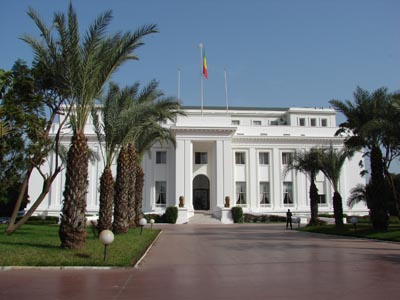 |
| Image prise sur ce lien-ci. |
They are thousands. Most of them come from the
countryside and more and more from neighbouring countries. They are visible everywhere.
If you are a foreigner in Senegal they’ll probably be one the first things you will
notice. For us, Senegalese, beggars are one of those things we are so familiar
with that we may only notice once they are gone. It’s a shame to say it, but
this is the sad reality.
Over the
years, beggars have become part of the décor of Dakar, the Senegalese capital.
The day beggars disappeared from our streets, I bet it would be hard to
recognise some areas of the city. I’m sure some would miss their turn just
because the group of little beggars that usually signpost their route have not
shown up. Others won’t recognise the tree that tells them to take left, because
the mum with the twins sitting under it for the last 5 years would no longer be
there. A round about like “Castors” will be just unrecognisable if the dozen or
more families, and as many little beggars, disappeared. Dakar without its
beggars would be chaos!
A good practice that went wrong
Originally
parents would send their kids to far corners for a few years in a Daara - a religious school - to learn the
Qu’ran. Kids would spend most of their time learning scripture and at lunchtime
would go to a few houses in the neighbourhood asking for food. This exercise
was part of their education to teach them about humility. Over the years, more
and more kids were sent to Daara, and less and less money went to the Marabouts
to take care of them. Many poor families across the country would send their
kids to Daara under the pretext of learning Qu’ran while the true reason would
be to have fewer mouths to feed. At the same time, some people calling
themselves Marabouts set up Daara to exploit kids and make them beg for their
profit all day long.
… fuelled and perpetuated by religious and
cultural beliefs
This
dimension of begging could not been better illustrated than in the fiction book
La grève des Battùs (Beggars’ strike). In this book, the
author Aminata Sow Fall, describes perfectly the only valid explanation
underlying and perpetuating the begging phenomenon and its scope in Senegalese
Society. I don’t want to spoil the story of the book but basically it says if
beggars disappeared from our streets, we would be the first to go and look for
them.
It seems
weird but for those who know Senegal would know how deeply Senegalese (a good
majority of them) are into mysticism, despite being at 95% Muslims. In fact I
could only imagine how desperate and devastated some would be to not find
beggars to give some food or some money to expiate their sins, cast away the
evil eye, have good karma, secure rewards in the after-life, get that girl, and
the other hundreds of reasons to give charity. For those who rely on offerings
to sort out their entire life, this situation will be a tragedy.
A sensitive issue. At all levels.
An amazing
number of projects and programmes have been developed to combat this
phenomenon, and some of them implemented. Yet begging is far to be eradicated.
In fact it’s even increasing and expanding as it now includes new profiles. Former
President Wade, a few months before the 2012 presidential elections, took an
official directive to clear the streets of beggars. The intervention of
religious leaders - who are quite powerful in our society - divided the
population, meaning those who supported this measure did not feel able to shout
loud enough. As a result the
President had to retreat a week later.
No one
complained. People even seemed relieved … This reaction is the Senegalese
paradox. Each and every Senegalese will tell you that they feel angry and sad
seeing little kids or entire families begging in the streets. However, for a
hundred thousand reasons and beliefs, they won’t stop giving charity and thus won’t
stop perpetuating this phenomenon.
As
beautifully demonstrated in the La Grève
des Battus, do we need the beggars as much as they need us? If so, how do we change?
















